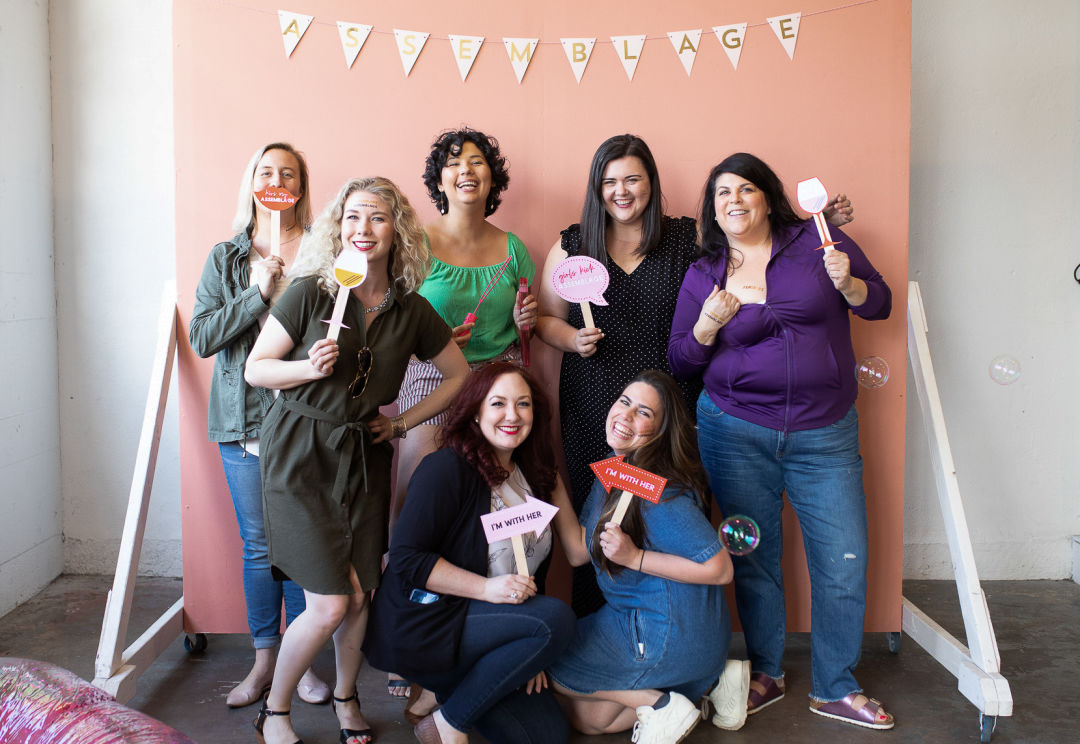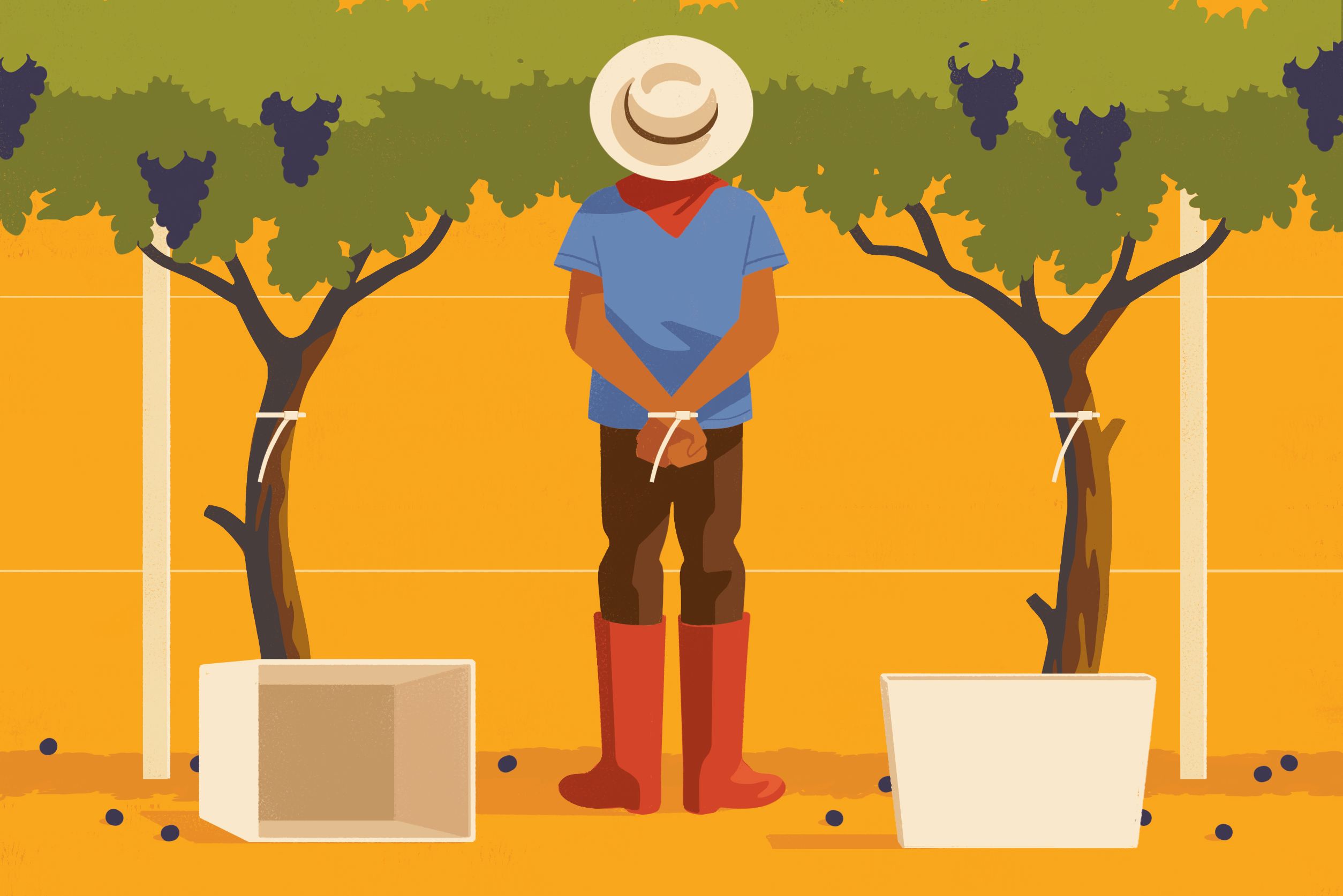Assemblage Founder Rachel Adams Talks Gender Equity in Oregon Winemaking

The Assemblage team with founder Rachel Adams standing second in from the top right.
Image: Carrie Welch
The wine industry has a gender equity problem, and Oregon is no exception. That’s where Assemblage Symposium comes in: the Oregon-based nonprofit aims to bring together woman-identifying and other diverse winemakers from across the state for a two-day program on January 14-15 at Linfield College in the Willamette Valley. Heads up: tickets for Assemblage go on sale today, October 28. You don’t have to be in the wine biz—or a woman—to soak in the wisdom of the various keynote speakers, mentors, panelists, and workshop groups.
We reached out to Assemblage founder Rachel Adams to learn more about the nonprofit, the state of the industry, and her own experience as a wine professional.
What are you most looking forward to at the Assemblage Symposium?
I’m especially excited to hear from Amy Bess Cook, the founder of Women-Owned Wineries, who will be speaking publicly for the first time since the drop of her groundbreaking article about why women working in wine stay silent about abuse. There’s also Dr. Kim Perkins who’s actually a former professional speed skater. Her focus is on competition versus collaboration and how “women empowering women” is not always as easy as it sounds, especially with so few positions available in top leadership.
We do have some speakers from within the Oregon wine community, but most of our keynote speakers are coming to us from outside the wine industry and from outside the state of Oregon. For example, Julia Coney, who speaks about the intersection between wine and race, is coming all the way from Washington D.C.
What’s your experience been like as a woman in Oregon’s wine industry?
For the last eight years I’ve worked in sales and marketing for four different Oregon wineries. For the most part, my experiences have been overwhelmingly positive, and I feel lucky to be a part of the Oregon wine story. However, I’d be lying if I said I’ve never experienced disrespect and even occasional abuse.
My job is not only to be hospitable and educate guests about wine, it’s also to be an ambassador of the brand. My cell phone number is always on my business card. If my hospitality is taken as, you know, flirting, and you add wine into the mix, I receive all kinds of text messages and invites out to dinner after a tasting. If you aren't trained in advance to deal with those scenarios, it can be intimidating because the reputation of the brand that you represent is potentially at stake.
Have you ever worked at a woman-owned winery?
I have! I had a great experience working for Bethel Heights vineyard which is owned by a mother-daughter duo in the Eola-Amity Hills. It was an incredibly positive experience for me, and one of the owners is now on the advisory board for Assemblage. The vineyard has been led and run by women of multiple generations and their passion for the land, the wine, and their team was inspiring.
From day one, it was clear that both my professional and mental health were of the utmost priority for them; women were ensured maternity leave benefits and weren't guilted for taking time off to care for family members. In general, while women are well represented at entry level and middle management positions in the wine industry, as you climb up the ladder towards executive leadership, gender equity starts to suffer. But at Bethel Heights, there was an intentional focus on advancing the careers of women.
Does Oregon have its own specific issues?
Much of the wine industry consists of small family run businesses, which oftentimes don’t have the resources to hire HR departments. In Oregon, most workplace protection laws require at least 25 employees before they go into effect. Establishments that don’t meet that target sometimes feel like the Wild West. Oregon is also an at-will state, which means that a business can let you go at any time without explanation. If you’re experiencing workplace harassment and you realize you can be fired at any time for any reason, that can be very scary.
What kind of progress has been made on the gender-equity front in recent years?
Linfield College did an Oregon wine industry salary survey in 2018. And so the fact that we now have state organizations pursuing data collection around diversity and equity in Oregon is a great sign. Unfortunately, the results of that survey show that there is still a significant gender-based pay gap in Oregon. For instance, for a director of national sales position, men on average make $95,000 per year, while women in the same position make $61,000.
What’s next for Assemblage and the Oregon wine industry?
We've already started and hope to continue hosting Women in Wine Dinners where we bring together women at the top of their game and female chefs to start having some of these conversations on a smaller, more intimate level. Additionally, we plan to dedicate funding to support continuing research on gender and racial representation in the state's wine region. Our hope for this first symposium is that we build a community that is hungry for this kind of content and that together, we can make real measurable change.




